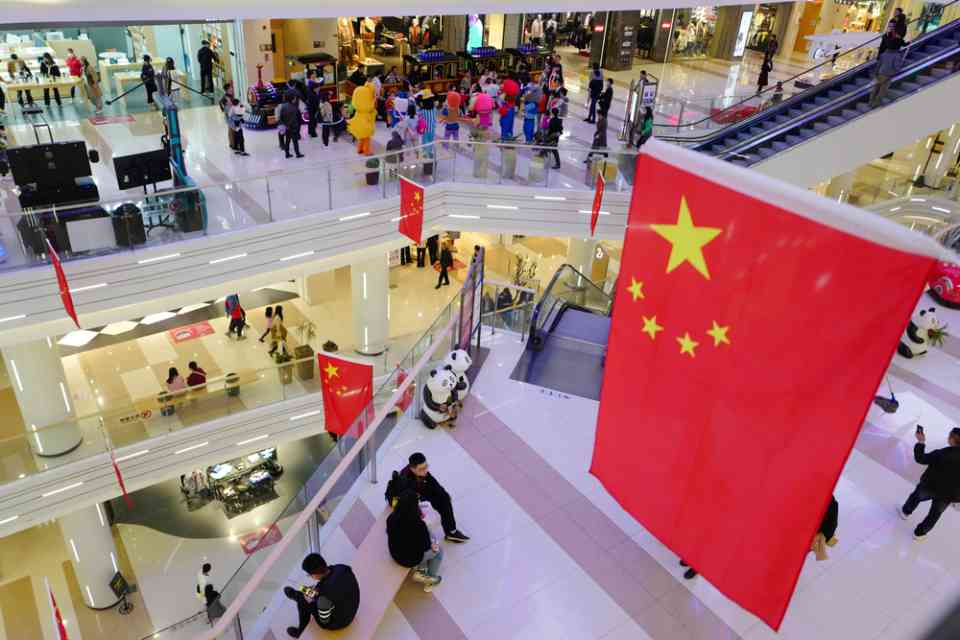China’s Economic Struggles Drive Shift to Cheaper “Dupes” as Consumer Confidence Plummets

China’s economic slowdown is a stark reality as salaries are being reduced. Many Chinese consumers have adjusted their spending habits and are now forgoing luxury brands like Louis Vuitton, Chanel, and Prada, which had once been their staples. According to Laurel Gu, a Shanghai-based director at market research firm Mintel, the economic downturn has led to a surge in demand for more affordable “pingti” products—high-quality replicas or “dupes” of designer goods. From 2022 to 2024, searches for these alternatives tripled as consumer confidence in China reached record lows.
The rise of dupes reflects a broader trend in China’s shifting consumer behavior. Once known for being the world’s top spenders on Western luxury goods, Chinese shoppers are now opting for affordable alternatives. This change is becoming the “new mainstream,” according to analysts, with dupes providing cheaper options that rival the quality and appearance of premium brands. For instance, while Lululemon’s Align yoga pants retail for $106, online stores offer similar products for as little as $5, often claiming comparable quality.
This shift is affecting not just individual brands like Louis Vuitton but also entire sectors. LVMH, the luxury conglomerate that owns Louis Vuitton, reported a 10% drop in sales in its Asia region (excluding Japan) during the first half of the year, largely driven by weakening demand in China. The popularity of dupes is also contributing to stagnant retail sales and overall consumption, which fell short of already-low expectations last month.
Economic data from the summer has economists worried that China may not reach its 5% growth target for 2023. In response, the Chinese central bank recently introduced measures to stimulate growth, including interest rate cuts and reducing bank reserve requirements to free up funds for lending.
Despite these efforts, consumer confidence remains fragile. A year and a half after reopening its borders post-pandemic, China’s consumer confidence index remains near historic lows, hovering at 86.0 in July—only slightly above the 85.5 low reached during the pandemic in late 2022. Falling stock prices, capital flight, and stagnant wage growth are discouraging consumers from spending. Many workers, like Zheng, already consider themselves fortunate enough to maintain their current salaries.
Job insecurity is another major concern. China’s youth unemployment rate for individuals aged 18 to 24, excluding students, hit 18.8% in August, the highest level since the figure was reintroduced earlier this year. The unemployment rate had reached consecutive record highs last summer before China paused the release of the data.
Amid these challenges, China’s central bank has taken steps to address faltering growth. Governor Pan Gonsheng recently announced a cut to the key lending rate, reducing the seven-day reverse repo rate from 1.7% to 1.5%. He also lowered the reserve requirement ratio for banks by half a percentage point, freeing up around $142 billion for lending. Additionally, mortgage holders will see lower rates and second-time homebuyers will benefit from a reduced minimum downpayment of 15%, down from 25%, in an effort to support China’s struggling real estate market.
China’s real estate sector, which once accounted for as much as 30% of economic activity, has been in sharp decline since 2019. A government crackdown on developers’ borrowing triggered a crisis that sent property prices plummeting and eroded consumer confidence. Many households, facing significant losses, have been selling assets and cutting back on spending and investment.
Prices of existing homes have dropped nearly 30% from their 2021 peak, according to data from Beike, which tracks housing transactions in 25 major cities. Barclays economists estimate that Chinese households have lost around $18 trillion in wealth due to the real estate downturn— a stark contrast to the post-pandemic wealth boom seen in the United States.
| GDP (nominal) | Capital | Head of State | Head of Government | GDP (nominal) per capita | GDP (PPP) | GDP (PPP) | GDP (PPP) per capita |
|---|---|---|---|---|---|---|---|
| China | Beijing | Xi Jinping | Li Qiang | 17.700.899 | 12.541 | 35.004.000 | 23.309 |
Have you read?
Best Fashion Schools.
Best Universities.
Best Medical Schools.
Best International High Schools.
Countries: Most Female Billionaires.
Bring the best of the CEOWORLD magazine's global journalism to audiences in the United States and around the world. - Add CEOWORLD magazine to your Google News feed.
Follow CEOWORLD magazine headlines on: Google News, LinkedIn, Twitter, and Facebook.
Copyright 2025 The CEOWORLD magazine. All rights reserved. This material (and any extract from it) must not be copied, redistributed or placed on any website, without CEOWORLD magazine' prior written consent. For media queries, please contact: info@ceoworld.biz








